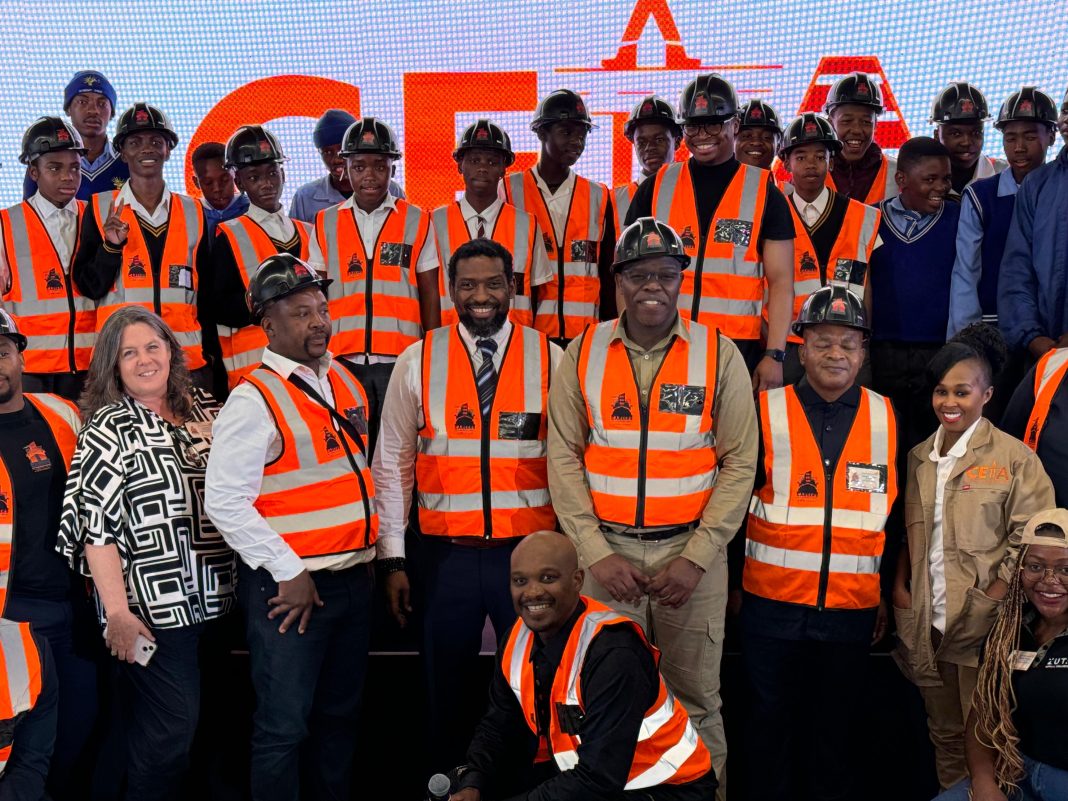By Thapelo Molefe
The Construction Education and Training Authority (CETA) has launched a digital initiative aimed at revolutionising the way young people access information about careers in the construction industry.
South Africa’s construction industry, a vital contributor to the country’s GDP, has long struggled with a severe shortage of skilled workers. This shortage has resulted in project delays, reduced quality of work and higher labour costs.
In efforts to address the critical skills shortage, CETA has introduced the Careers for Tomorrow’s Impact programme.
Developed in partnership with Yalina, Primestars and the YouthStart Foundation, the programme seeks to empower high school learners from under-resourced communities to pursue careers in construction and the built environment.
It offers learners a comprehensive understanding of the construction sector, introducing them to various career paths, including engineering, plumbing, bricklaying and electrical work.
Emphasis is placed on science, technology, engineering and mathematics disciplines, ensuring learners are equipped to thrive in an increasingly technology-driven industry.
Speaking at the launch of the programme on Thursday, CETA strategic partnerships head Koketso Maimela emphasised the importance of adapting to the digital age, citing the widespread use of smartphones and online platforms among young people.
“We need to move with the times,” Maimela said. “The best way to reach young people is through their devices and digital media.”
The new initiative focuses on creating immersive and accessible experiences for learners, particularly in rural and township areas.
CETA has developed innovative digital platforms, simplified language and interactive content to engage young people and provide them with valuable information about construction careers.
The initiative boasts several key features designed to engage and educate young people about careers in the construction industry.
Maimela said at its core, the programme utilised easy-to-navigate digital platforms, ensuring that learners could effortlessly access and explore the available resources.
Additionally, the content was presented in accessible language, free from technical jargon, making it understandable to a wide audience.
To further enhance the learning experience, she said the initiative incorporated immersive experiences, including interactive exhibits and simulations, which provided a hands-on glimpse into the world of construction.
The programme prioritised targeted outreach to rural and township areas, bridging the gap in access to information and opportunities for these communities.
Maimela highlighted the programme’s potential to empower the workers of tomorrow.
“This initiative shows young people that there are options available to them, and provides the information they need to make informed decisions about their careers,” she said.
It also aimed to upskill existing construction workers, addressing the industry’s skills gap.
Maimela noted that while global construction trends were shifting towards technology and automation, South Africa’s context required a balance between technological advancement and social considerations.
Looking ahead, CETA plans to expand the programme’s reach, aiming to engage 10,000 learners in the first phase and doubling that number in subsequent phases.
“This is just the beginning. We want to make digital education a culture in every programme we implement, providing opportunities for young people to access information and pursue careers in construction,” Maimela said.
“CETA is committed to bridging this gap by nurturing the next generation of construction professionals,” said CETA CEO Malusi Shezi.
“Through Careers for Tomorrow’s Impact, we’re not only shaping the future of our industry, but also transforming lives and communities.”
On breaking down barriers for women in construction, Shezi said the programme challenges the stereotype that construction was men’s work.
“Women have an essential role to play in building our society,” Shezi emphasised.
“We’re committed to empowering young women to succeed in this field.”
The launch marks a significant step forward in CETA’s commitment to innovation and accessibility, poised to transform the construction industry’s approach to education and training.
INSIDE EDUCATION










